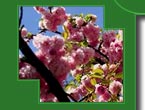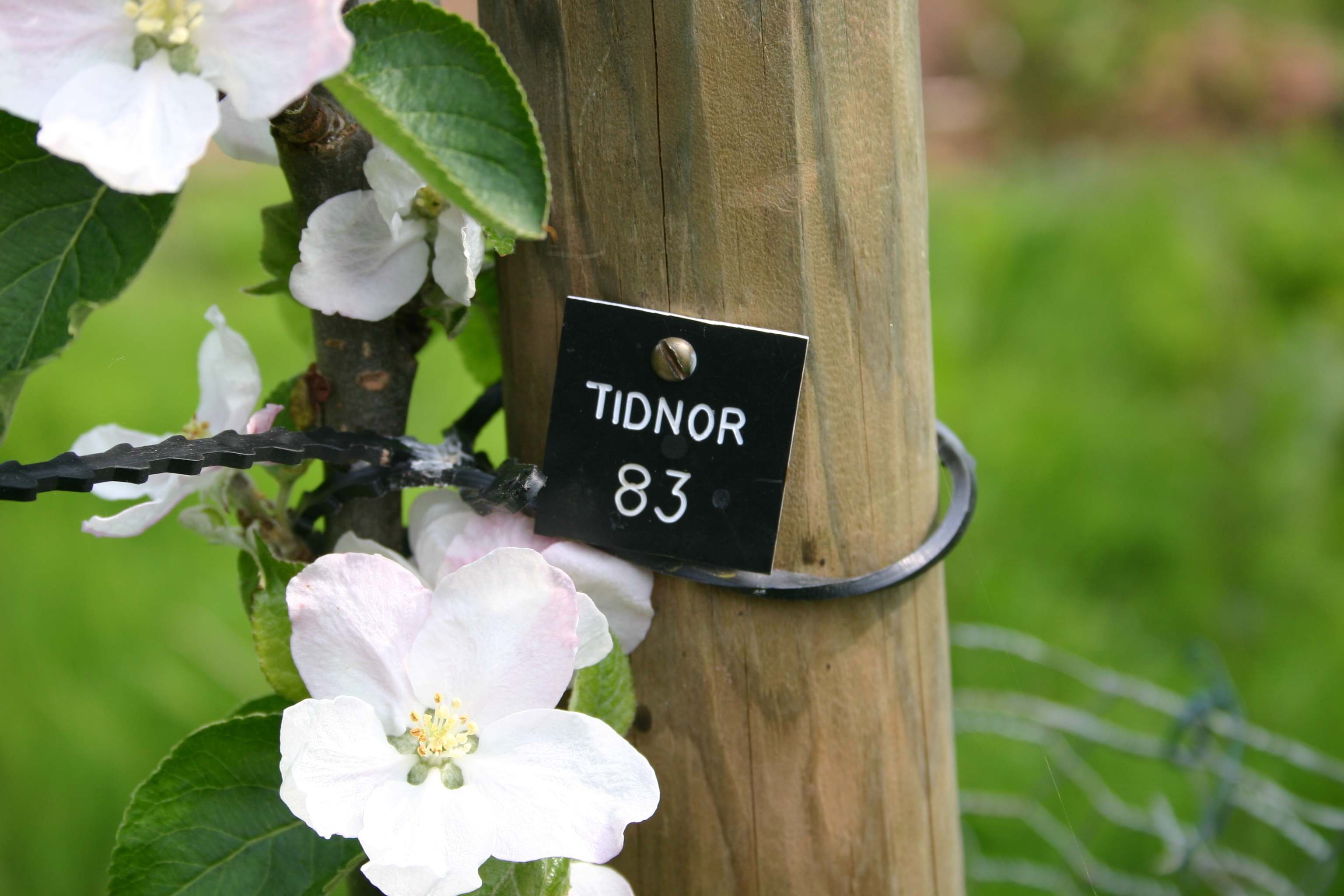
|
Ethos This project started out as an endeavour “to save an old Herefordshire orchard or two”. Instead, the founder ended up buying a commercial orchard of half standard trees overlooking the Lugg valley on the outskirts of Hereford City. By the judicious purchasing of three adjoining plots of orchard land over the following two years, the site area currently stands at 26 acres – almost a farm. The reality was that “old Herefordshire orchards” are extremely difficult to purchase. There are not too many left and those that are, are usually inexorably linked to the farmhouse that they were planted to serve. A supreme irony was that, having purchased the first orchard (now known as Top Orchard or Museum Orchard), it was discovered that, over what was left of the fence, lay 2.5 acres of the very “old orchard” that the search had been for. Even more fortuitous was that the owner, farmer Peter Davies MBE, agreed to a sale. It is said that cider has been in Britain since Roman times or even before. In all those 2000 years or so many may have thought to set up a museum of cider apples trees but nobody has put themselves out to actually do it. Cider has made the fortune of many men and dynastic families. Dozens of academic researchers have made their reputations from the study of the tree and its fruit – and still do. But nobody has cared enough to protect all the varieties of that fruit from extinction. Consequently, many old and once famous varieties of cider apple cannot be found anymore; they are lost forever. Many more are on the verge of disappearing. Some gasp in a lonely half forgotten orchard whilst others are swept away summarily in the vanguard of a housing development. It is interesting that a journalist occasionally cottons on to lost varieties of apple or plum or whatever and writes a lament in a week-end newspaper. Interest surges and dissipates just as quickly and everyone, including the journalist, moves on and nothing is done. The TIDNOR WOOD ORCHARD TRUST has set out to resolve that position and protect into perpetuity all the varieties of UK cider and cider related apples. Rather than preserve these trees for posterity as dwarfs or bush specimens, we felt able to grow them as full half-standards in the same commercial format as when we purchased the original orchard. In this way, the trees will grow to contribute to the upkeep of the collection through the sales of their fruit to the cider maker. Uniquely, the TIDNOR WOOD ORCHARD TRUST makes no applications for grants, subsidies or handouts. We consider that there are far more deserving causes for charity than ours. And for the same reason, we have not sought to register ourselves as a Charity, preferring to stand alone and on our own two feet. Currently our income comes mainly from the sale of our apples. We are developing peripheral activities, which may one day seriously augment the cash flow of the Trust and guarantee its survival. Being a heritage organisation, it behoves us to respect and protect our immediate environment. To that end we are operating under an organic regime through the auspices of the Soil Association and Westons Cider Makers of Much Marcle, through whom our fruit will be processed into organic cider. Never again will our orchards smell like a delousing chamber. Of course, our ecological credentials extend to the flora and fauna and we have sought relationships with the Herefordshire Wildlife Trust and other similar organisations to this end.
By eschewing grants and subsidies, we remain captain of our poop deck and do not have to walk the various gangplanks that pirated money incurs. Whilst we can regulate the access of the world, his wife and their dogs, it is not our intention to be totally inaccessible. We have, for example, purchased an old stone cider mill, which we intend to restore and provide a spectacle for local schoolchildren and their grandparents in the appropriate season. We will, of course, be open and pleased to welcome our tree sponsors on allotted days. We have decided to do away with memberships and annual subscriptions and all the money grubbing that that entails. Tree sponsorship is in itself a form of life membership. It is not that we do not need or want money – it is just that the sort of people who will want to sponsor our trees are responsible enough without being pestered at every turn. They will advance our cause when, and in the manner that, they want or feel able to. Museums are often seen as inward looking and as dusty as their exhibits. We have aspirations to move upwards and forever onward, and our core is of course a vibrant, living organism We have searched the UK high and low for specimens of cider apple trees including our highly prized mini collection of varieties from Jersey in the Channel Islands. Now we are seriously looking at the potential of setting up in Normandy a “Tidnor Wood” of French cider apple varieties. In parallel, we are acutely aware of the ongoing threat of global warming and are actively monitoring the predictions being charted by meteorologists and geographers. The prospect of locating a second (duplicate) collection in an area currently marginally good for apple growing, but which will become more favourable (e.g. in northern England or east Scotland) is a challenging one. What we certainly are not is a fuddy-duddy, set in stone, dusty set of “no change” yesterday’s ideas. What we certainly need is new blood, new energy, new ideas and challengers to take over the helm. |

